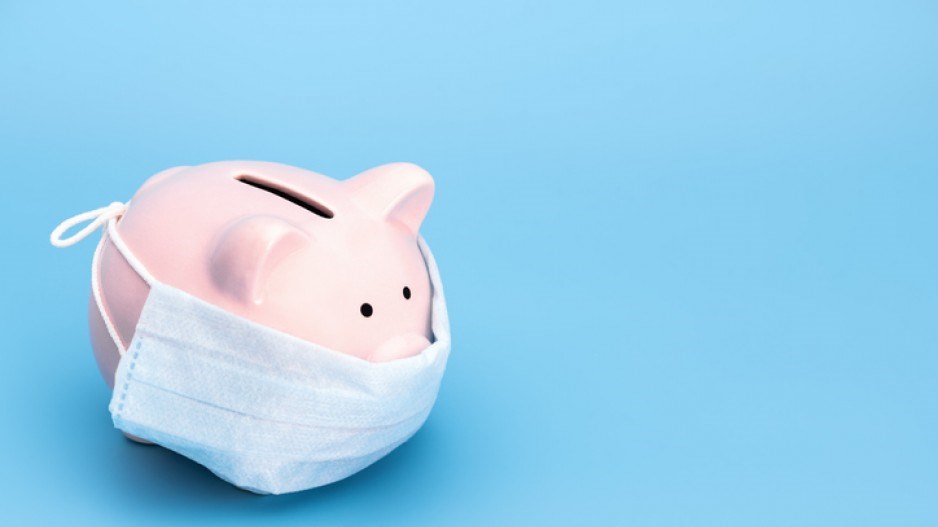Over the past few weeks, Research Co. and Glacier Media have reviewed the state of affairs in British Columbia on many issues related to COVID-19.
We have seen that about one in six of the province’s residents do not consider the pandemic as “a real threat,” and that majorities still support the work of the federal, provincial and municipal administrations in dealing with the situation. We also know that most residents want a gradual approach to reopening economic activity.
This time, we focused on economic matters. The way in which British Columbians perceive their financial status now can be divided into three groups. The largest one, encompassing almost half of residents (48%), reports that the COVID-19 pandemic has not resulted in a major change when it comes to their wallets.
Just under one in five British Columbians (17%) say their finances are “significantly” or “moderately” better now than before the pandemic. This group includes 23% of those aged 18 to 34, 21% of Fraser Valley residents and 27% of those in the highest income bracket.
In a more troubling development, a third of British Columbians (33%) say their financial situation is “significantly” or “moderately” worse now than it was a year ago.
Not all groups have been affected equally. The proportion of British Columbians who have not recovered fully from the pandemic’s economic impact includes 36% of women, 39% of those in the lowest income bracket and 49% of those who live in northern B.C.
British Columbians of First Nation and South Asian descent are slightly more likely to say that the pandemic has affected their household finances (38% each) than their counterparts of East Asian (33%) and European (32%) origins.
In the context of this uncertainty, British Columbians are faced with decisions about what to pay for and how. The lockdowns may have obliged some to save on expenses such as restaurant visits and live entertainment, but this does not mean that we are getting by with whatever was already in our homes before COVID-19 arrived.
Some British Columbians acknowledge that they have spent more on newspapers and magazines (7%), board games (13%) and books (15%) during the pandemic. This pales in comparison with the almost three in 10 (29%) who are devoting more money to cable TV, streaming services and other electronic entertainment.
The scenario is different when we assess other household expenses. Housing, long identified with homelessness and poverty as one of the major issues facing the province, has not been immune to the current crisis. Across the province, 77% of residents report no change in the amount of money they devote to covering mortgages or rents. This might appear to be a good omen considering the circumstances of the past 12 months. However, while 5% of British Columbians say they are paying less now to have a home than they did a year ago, 14% say their housing costs have increased.
The problem of ballooning housing expenditures is more pronounced in northern B.C. (21%) and the Fraser Valley (18%), but also among women (17%) and residents aged 18 to 34 (19%). Once COVID-19 is behind us, the pressure on government to make life easier for residents will return in earnest.
There is one household expenditure where British Columbians are more likely to report a significant dent in the family budget. More than half of residents (54%) say they are spending more on groceries than they did before the pandemic. No group is exempt from feeling this way, although women appear to be quicker at figuring out this fluctuation than men (63% and 46%, respectively).
If there is a silver lining when it comes to household expenses, it comes in the form of transportation. While only 18% of the province’s residents are spending more on fuel for vehicles, transit passes or taxis than they did before COVID-19, 37% say they are spending less. This is an understandable side effect of many British Columbians working from home.
As spring begins, so does the expectation of a British Columbia with fewer restrictions, more gatherings with friends and family and an accelerated inoculation strategy. There is a sizable proportion of British Columbians who feel left behind because of what COVID-19 has thrown their way. While governments continue to enjoy high ratings on their management of the pandemic, a recovery plan cannot come soon enough for one third of British Columbians who acknowledge living in a more dire financial situation. •
Mario Canseco is president of Research Co.
Results are based on an online survey conducted from March 1 to March 3 among 800 adults in British Columbia. The data has been statistically weighted according to Canadian census figures for age, gender and region in British Columbia. The margin of error, which measures sample variability, is plus or minus 3.5 percentage points, 19 times out of 20.




